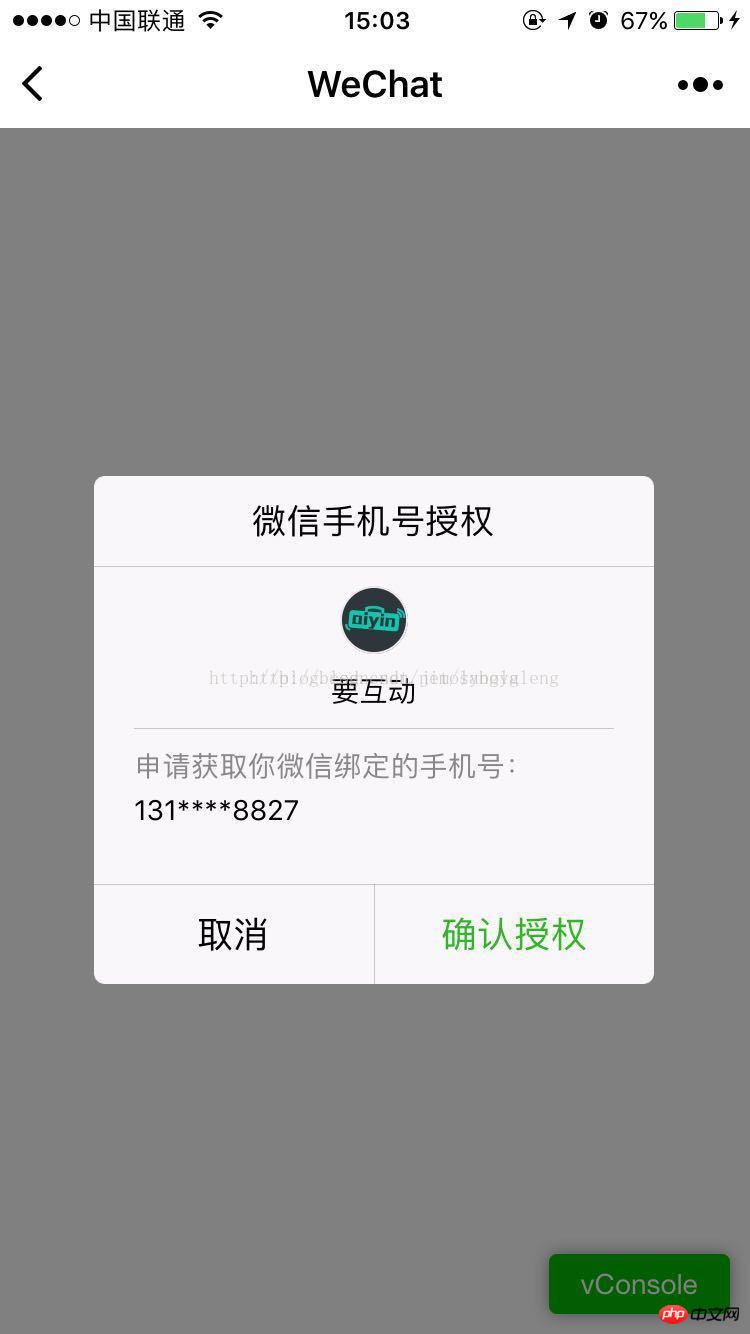
There are many places in the mini program where registered user information is used. Users need to fill in their mobile phone number, etc. With this component, you can quickly obtain the mobile phone number bound to WeChat without the user filling it in. This article mainly shares with you the WeChat applet function of obtaining authorized user login with mobile phone number. Friends who need it can refer to it. I hope it can help everyone.
1. The getPhoneNumber component is implemented through button (other tags are invalid). Set open-type="getPhoneNumber" in the button and bind the bindgetphonenumber event to get the callback.
<span style="font-size:14px;"><button open-type="getPhoneNumber" bindgetphonenumber="getPhoneNumber"></button></span>
2. The login interface must be called before using this component. If login is not called, when you click the button, you will be prompted to call login first.
App({
onLaunch: function () {
wx.login({
success: function (res) {
if (res.code) {
//发起网络请求
console.log(res.code)
} else {
console.log('获取用户登录态失败!' + res.errMsg)
}
}
});
}
})3. Get the callback through the event bound to bindgetphonenumber. There are three parameters of the callback,
errMsg: the information callback when the user clicks to cancel or authorize.
iv: The initial vector of the encryption algorithm (undefined if the user does not agree to the authorization).
encryptedData: Encrypted data of user information (if the user does not agree to authorize, it will also return undefined)

getPhoneNumber: function(e) {
console.log(e.detail.errMsg)
console.log(e.detail.iv)
console.log(e.detail.encryptedData)
if (e.detail.errMsg == 'getPhoneNumber:fail user deny'){
wx.showModal({
title: '提示',
showCancel: false,
content: '未授权',
success: function (res) { }
})
} else {
wx.showModal({
title: '提示',
showCancel: false,
content: '同意授权',
success: function (res) { }
})
}
}4. Finally, we need to do it according to our own business logic Processing, if the user does not agree to the authorization, we may have an interface for him to enter manually. If it is not mandatory to obtain the mobile phone number, he can jump directly to the page and proceed to the next step. (The user does not agree to authorize errMsg and returns 'getPhoneNumber:fail user deny')
5. The user agrees to authorize. We can get the session_key through the background and WeChat processing based on the code obtained when logging in. Finally Through app_id, session_key, iv, encryptedData (the user agrees to authorize errMsg to return 'getPhoneNumber:ok')
I also learned a small program function, I hope it can help everyone.
Related recommendations:
Regular expression writing method for obtaining mobile phone number in PHP
Instance analysis of WeChat applet implementing synchronous request authorization
Summary of points to note about authentication and authorization
The above is the detailed content of An example to explain the WeChat applet's function of obtaining authorized user login by mobile phone number. For more information, please follow other related articles on the PHP Chinese website!
 Mini program path acquisition
Mini program path acquisition
 How to restore videos that have been officially removed from Douyin
How to restore videos that have been officially removed from Douyin
 How to create a soft link
How to create a soft link
 What does margin mean in css
What does margin mean in css
 After the computer is turned on, the monitor shows no signal
After the computer is turned on, the monitor shows no signal
 ps brightness contrast shortcut keys
ps brightness contrast shortcut keys
 What is the difference between guid and mbr formats
What is the difference between guid and mbr formats
 C language data structure
C language data structure




